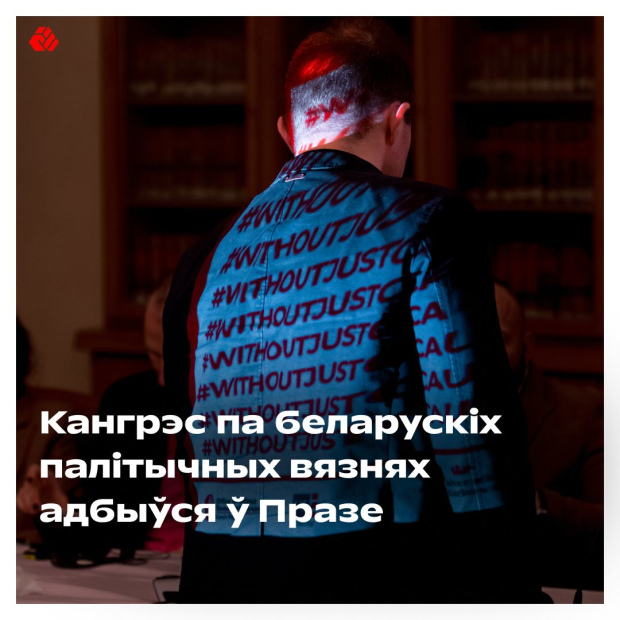A Congress on Belarusian Political Prisoners was held in Prague. It was attended by the Deputy Minister of Foreign Affairs of the Czech Republic, Jana Marian. Among the participants was Nobel Peace Prize laureate Oleksandra Matviichuk (her Ukrainian "Center for Civil Liberties" received the prize in 2022 along with Belarusian political prisoner Ales Bialiatski and the Russian human rights organization "Memorial").
Representatives from The Office of Sviatlana Tsikhanouskaya, The United Transitional Cabinet, The Coordination Council, The Belarusian Helsinki Committee, "Viasna," DissidentBY, BYhelp, and "A Country to Live in" foundation also participated in the Congress. The head of our Foundation shared that during the congress, participants summarized information on what is specifically lacking, what can be improved, and what needs attention in the system of assistance to political prisoners.
"This is the first event of this format on the topic of political prisoners in almost four years," said Olga Zazulinskaya, head of the "A Country to Live in" foundation. "All the speakers were well-prepared, there were many statistics and presentations. It was valuable to listen to domestic political prisoners and former political prisoners during the congress. The only thing that, of course, disappointed me was the weak media coverage. Radio Liberty and Nasha Niva were present and covered the event on their platforms, for which I am very grateful."
The congress addressed two main discussion vectors: families of political prisoners and former political prisoners both inside the country and abroad. Participants analyzed the needs of these groups and the problems they face both within the country and when relocating. "It was noted that even the existing assistance is insufficient to fully meet all the needs. Particular attention was paid to the issue of assistance within the country, to the difficulties people face every day: the conditions of detention of political prisoners, incommunicado regime, lack of medical care in pre-trial detention centers and colonies," noted Olga Zazulinskaya. According to statistics, repression not only continues but is gaining momentum again.
"I believe that events of this format are simply necessary, and it is desirable that they become regular. I think it is important to invite relatives of political prisoners and former political prisoners because they show the real state of affairs, and we need this to build further work in this field."
Representatives from The Office of Sviatlana Tsikhanouskaya, The United Transitional Cabinet, The Coordination Council, The Belarusian Helsinki Committee, "Viasna," DissidentBY, BYhelp, and "A Country to Live in" foundation also participated in the Congress. The head of our Foundation shared that during the congress, participants summarized information on what is specifically lacking, what can be improved, and what needs attention in the system of assistance to political prisoners.
"This is the first event of this format on the topic of political prisoners in almost four years," said Olga Zazulinskaya, head of the "A Country to Live in" foundation. "All the speakers were well-prepared, there were many statistics and presentations. It was valuable to listen to domestic political prisoners and former political prisoners during the congress. The only thing that, of course, disappointed me was the weak media coverage. Radio Liberty and Nasha Niva were present and covered the event on their platforms, for which I am very grateful."
The congress addressed two main discussion vectors: families of political prisoners and former political prisoners both inside the country and abroad. Participants analyzed the needs of these groups and the problems they face both within the country and when relocating. "It was noted that even the existing assistance is insufficient to fully meet all the needs. Particular attention was paid to the issue of assistance within the country, to the difficulties people face every day: the conditions of detention of political prisoners, incommunicado regime, lack of medical care in pre-trial detention centers and colonies," noted Olga Zazulinskaya. According to statistics, repression not only continues but is gaining momentum again.
"I believe that events of this format are simply necessary, and it is desirable that they become regular. I think it is important to invite relatives of political prisoners and former political prisoners because they show the real state of affairs, and we need this to build further work in this field."


 Continue
Continue
